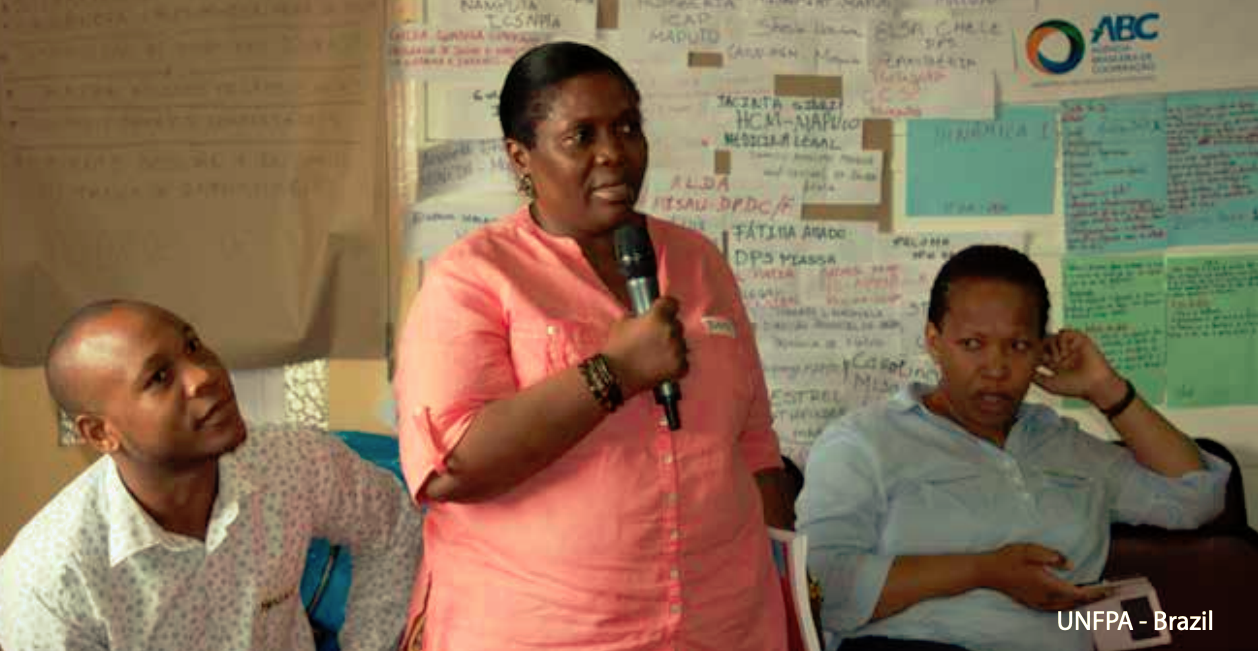 Promoting Gender Equality and Empowerment of Women
A cooperation arrangement that aimed to promote policy reforms, strengthen institutional capacities, and mobilize communities in support of gender equality.
Promoting Gender Equality and Empowerment of Women
A cooperation arrangement that aimed to promote policy reforms, strengthen institutional capacities, and mobilize communities in support of gender equality.

Challenges
The 1995 Beijing Declaration and Platform for Action, was a major milestone for women’s rights and empowerment. There is increasing evidence that when women are empowered, economies grow faster and families are healthier and better-educated. However, in many countries, gender inequality persists and remains a big challenge. Through the exchange of knowledge and experiences, countries can address existing gaps and shape policies, practices and services relating to social protection, violence against women and economic empowerment, among others.
Towards a Solution
In collaboration with the United Nations Population Fund (UNFPA), The United Nations Entity for Gender Equality and the Empowerment of Women (UN-Women) and the United Kingdom of Great Britain and Northern Ireland's Department for International Development, Brazil and Mozambique embarked on a joint initiative with the following objectives:
- Support institutional capacity development in the formulation and implementation of public policies and strategies that promote women’s economic autonomy in Mozambique. · Contribute to strengthen institutional capacities to provide integrated responses to violence against women (VAW); and
- Support community participation and social mobilization in women’s economic empowerment and responses to VAW.
Results
Best practices of Brazil’s 20-year experience in social protection and the promotion of gender equality and women’s empowerment through legislation, policies and programmes were shared for adaptation, as appropriate. These include, among others, initiatives such as the Bolsa Família (conditional income transfer programme), “Mulher, Viver sem Violência”- a multi-sectoral programme to end VAW, and social policies targeting rural women.
Demonstrating the two-way flow of learning, Brazilian partners were introduced to Mozambique’s inter-sectoral coordination arrangements of the National Council on the Advancement of Women and to the Single Registration Form (ficha única) for VAW survivors - a tool to avoid re-victimization by ensuring all services collect and share information on cases.
The cross-country exchange resulted in a wide range of initiatives in Mozambique, including mobilization of key stakeholders in raising awareness on VAW and advocacy strategies promoting the commitment of authorities to strengthen social protection systems.
Contact Information
Countries involved
Supported by
Implementing Entities
Project Status
Project Period
Primary SDG
Primary SDG Targets
Secondary SDGs
Secondary SDG Targets
Similar Solutions
| NAME OF SOLUTION | Countries | SDG | Project Status | |
|---|---|---|---|---|
A Billion Brains: Smarter Children, Healthier Economies High Level Meeting on South-South Cooperation for Child Rights |
Brazil, Mozambique, United Kingdom of Great Britain and Northern Ireland | 17 - Partnerships for the Goals | Completed | View Details |
Accelerator Labs Network Following collective intelligence methods to address emerging sustainability challenges and the growing demand for local solutions |
Brazil, Mozambique, United Kingdom of Great Britain and Northern Ireland | 08 - Decent Work and Economic Growth 13 - Climate Action | Ongoing | View Details |
ACP Business-friendly Supporting business-friendly and inclusive national and regional policies, and strengthening productive capabilities and value chains |
Brazil, Mozambique, United Kingdom of Great Britain and Northern Ireland | 08 - Decent Work and Economic Growth 17 - Partnerships for the Goals | Ongoing | View Details |
Adaptation of 3PA to Urban and Displacement Settings Using South-South and Triangular Cooperation in World Food Programme Three-Pronged Approach capacity strengthening through cross-learning initiatives |
Brazil, Mozambique, United Kingdom of Great Britain and Northern Ireland | 02 - Zero Hunger | Completed | View Details |
Adapting Digital Payment to Initiate Rapid Response During Pandemic Bangladesh government disbursed cash aid to 5 million most vulnerable families through mobile financial service in order to minimize the financial impact during COVID 19 within the shortest period of time. |
Brazil, Mozambique, United Kingdom of Great Britain and Northern Ireland | 03 - Good Health and Well-being 05 - Gender Equality | Completed | View Details |

